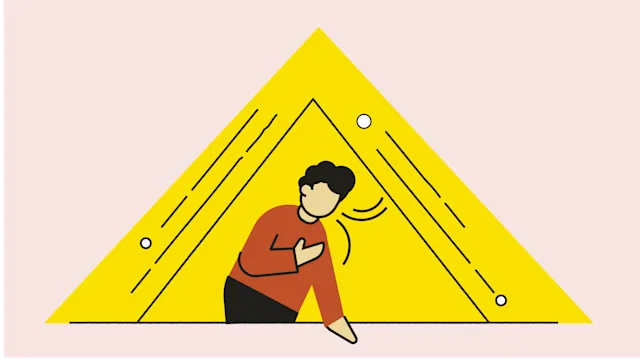Key takeaways:
Erosive esophagitis causes inflammation and damage to the lining of the esophagus, the tube that connects the mouth to the stomach.
You should limit or avoid certain foods completely if you have erosive esophagitis. These include spicy foods, fatty foods, alcohol, caffeine, and carbonated beverages.
Other treatments that can help erosive esophagitis include medications, sleeping with your head elevated, and maintaining a healthy weight.
Esophagitis is a medical condition in which the esophagus becomes inflamed. The esophagus is a tube that connects the mouth to the stomach. When the esophagus becomes inflamed, people can experience:
Pain with swallowing
Trouble eating and swallowing
Chest pain
Food impaction (food getting stuck in your esophagus)
Heartburn
Many things can lead to esophagitis. These include medications, radiation therapy, and medical conditions like eosinophilic esophagitis and gastroesophageal reflux disease (GERD).
Search and compare options
GERD causes a specific type of esophagitis called erosive esophagitis. Erosive esophagitis develops when inflammation leads to widespread damage of the lining of the esophagus.
Erosive esophagitis can lead to serious complications including scarring, ulcers, and cancer of the esophagus. Fortunately, there are medications that can help control GERD, which stops further esophageal damage. And there are also medications that can help heal esophageal injury.
Diet changes may also help you manage GERD and lower your risk of esophageal injury. If you have erosive esophagitis, you may have heard that what you eat can worsen inflammation.
While research is still ongoing in this area, it is clear that certain foods worsen GERD symptoms for some people. And experts recommend that people avoid any foods that worsen their GERD symptoms. If you have erosive esophagitis, here are 7 foods to watch out for.
1. Acidic foods
Your stomach makes acid to break down food, so your body can absorb nutrients. But acid that finds its way into the esophagus can cause injury and inflammation. Acidic foods can directly irritate the lining of the esophagus. This can aggravate your reflux symptoms and potentially cause further injury to your esophagus lining.
Avoid the following acidic foods:
Citrus fruits: oranges, lemons, limes, and grapefruits, as well as their juices
Tomatoes and tomato-based products: ketchup and salsa
Acidic cheeses: parmesan and cheddar cheese
Acidic condiments: vinegar, mustard, barbeque sauce, and soy sauce
Pickles: dill pickles, for example
If your symptoms improve after avoiding these foods, you can adjust your diet to limit or avoid all acidic foods.
2. Caffeine
Caffeinated drinks are a known trigger food for heartburn and reflux. Caffeine can relax the lower esophageal sphincter, which is the muscle that separates the stomach from the esophagus. A relaxed esophageal sphincter allows acid to escape the stomach and make its way into the esophagus, causing inflammation and damage.
You may not have to completely cut caffeine out of your diet in order to help your erosive esophagitis. Sometimes, just cutting back on how much you drink each day can help. Try to cut down on caffeinated drinks like:
Coffee
Iced and hot tea
Energy drinks
Energy water
Energy “shots”
Cola drinks
And don’t forget to keep an eye on how much caffeine you eat too. Chocolate can contain high levels of caffeine, especially dark and unsweetened chocolate. Caffeine is also added to some snacks and gum, even to over-the-counter (OTC) medications like pain relievers.
3. Carbonated drinks
Carbonated drinks contain dissolved carbon dioxide. When you open a carbonated beverage, you release the pressure inside the container and the carbon dioxide bubbles out, creating that fizziness people love.
But not all the gas escapes, and you end up drinking a lot of it. Once it hits your stomach, the carbon dioxide causes your stomach to temporarily stretch out. This puts pressure on your lower esophageal sphincter, which can make it stretch open, allowing acid to escape. Some people notice that their reflux symptoms worsen immediately after drinking a carbonated beverage. If that’s the case for you, it’s best to avoid:
Sparkling water
Soda, including club soda
Ginger ale
Root beer
Carbonated energy drinks
Tonic water
Beer
Champagne and sparkling wine
Hard seltzers and ciders
Keep in mind that some carbonated beverages also contain alcohol or caffeine. Both alcohol and caffeine can worsen reflux symptoms and therefore worsen erosive esophagitis. So, you might want to prioritize avoiding drinks that contain both.
4. Alcohol
Alcohol can directly damage the lining of your esophagus. It can also cause your lower esophageal sphincter to relax and allow acid to move into your esophagus. Cutting back on alcohol intake may lessen your reflux symptoms. And it can also improve your overall health.
Alcohol-containing drinks include:
Beer
Wine and champagne
Hard seltzer and ciders
Malt alcoholic beverages
Hard alcohol (gin, vodka, rum, tequila, whiskey)
5. High-fat foods
Foods with a high fat content can relax the lower esophageal sphincter. But they also slow down how fast the stomach empties, so the stomach remains enlarged for longer periods of time. A stretched-out stomach puts increased pressure on the lower esophageal sphincter too. Many people notice that their reflux symptoms worsen after eating foods that are high in fat. The most common culprits are fried foods. Other foods that can trigger reflux symptoms include:
Processed meats like bacon and sausage
Potato chips and other fried snacks
Pizza
6. Spicy foods
Spicy foods have high levels of capsaicin, a natural plant compound. Capsaicin slows how quickly your stomach empties and can irritate your esophagus lining too. Spicy foods also often contain garlic and onions, which can relax the lower esophageal sphincter. Sometimes, spicy foods are also fried, which doubles the risk of triggering reflux symptoms.
If you notice that your symptoms worsen after eating spicy foods, make sure to avoid spices like:
Garlic
Onions
Red chili peppers
Jalapeños
Cayenne
Habanero
7. Hard foods
Hard foods won’t worsen your reflux symptoms. But foods with sharp or hard edges may not be easy to eat when you have erosive esophagitis. In fact, eating hard foods can be downright painful.
You may want to avoid:
Nuts and seeds
Raw vegetables
Dried fruit
Popcorn
Chips
Hard taco shells
Crackers
Breakfast cereals
Tips for eating with erosive esophagitis
In addition to avoiding trigger foods, there are other steps you can take to make eating with erosive esophagitis easier and less painful:
Eat smaller meals. Eating smaller meals more frequently can help lessen stomach enlarging and pressure on your lower esophageal sphincter. Eating 5 to 6 small meals a day can be easier than 3 large meals if you’re having pain.
Eat slowly. Give yourself more time to eat and chew. Chewing food completely can make it easier to swallow. You can also take a sip of water before swallowing to help get food down your esophagus.
Make each bite count. If pain is keeping you from eating, make sure you pack more nutrition into each bite. Adding protein powders or choosing higher-fat dairy options can help. Working with a nutritionist can also help you figure out how to make sure you get enough nutrition in your daily diet.
Soften your food. In addition to avoiding hard foods, you can make naturally soft foods even softer so they’re easier to eat and swallow. You can try mashing or blending foods. You can also try wet cooking techniques. A nutritionist can give you tips on how to approach cooking with your unique needs in mind.
The bottom line
Erosive esophagitis is a medical condition caused by GERD. People with erosive esophagitis have damage to their esophagus lining, which can be painful and make it harder to eat. If you have erosive esophagitis, it’s important to avoid foods that trigger your reflux symptoms. Trigger foods include spicy and fried foods, acidic foods, carbonated beverages, and caffeine. People with erosive esophagitis often have trouble eating due to pain. Eating smaller meals more frequently and sticking with soft foods can help you eat more comfortably. It’s also a good idea to work with a nutritionist to make sure you’re getting the nutrition you need from your diet.

Why trust our experts?


References
American Society for Gastrointestinal Endoscopy. (2014). Diet and gastroesophageal reflux disease (GERD).
Cedars-Sinai Blog. (2018). Esophageal soft food diet guidelines.
Chen, S. H., et al. (2010). Is alcohol consumption associated with gastroesophageal reflux disease? Journal of Zhejiang University-Science B (Biomedicine & Biotechnology).
Johnson, T., et al. (2010). Systematic review: The effects of carbonated beverages on gastro-oesophageal reflux disease. Alimentary Pharmacology & Therapeutics.
Kaltenbach, T., et al. (2006). Are lifestyle measures effective in patients with gastroesophageal reflux disease? An evidence-based approach. Archives of Internal Medicine.
Mehta, R. S., et al. (2020). Association between beverage intake and incidence of gastroesophageal reflux symptoms. Clinical Gastroenterology and Hepatology.
Newberry, C., et al. (2019). The role of diet in the development and management of gastroesophageal reflux disease: Why we feel the burn. Journal of Thoracic Disease.
Swanson, C. (2020). Foods that cause heartburn. Austin Gastroenterology.












